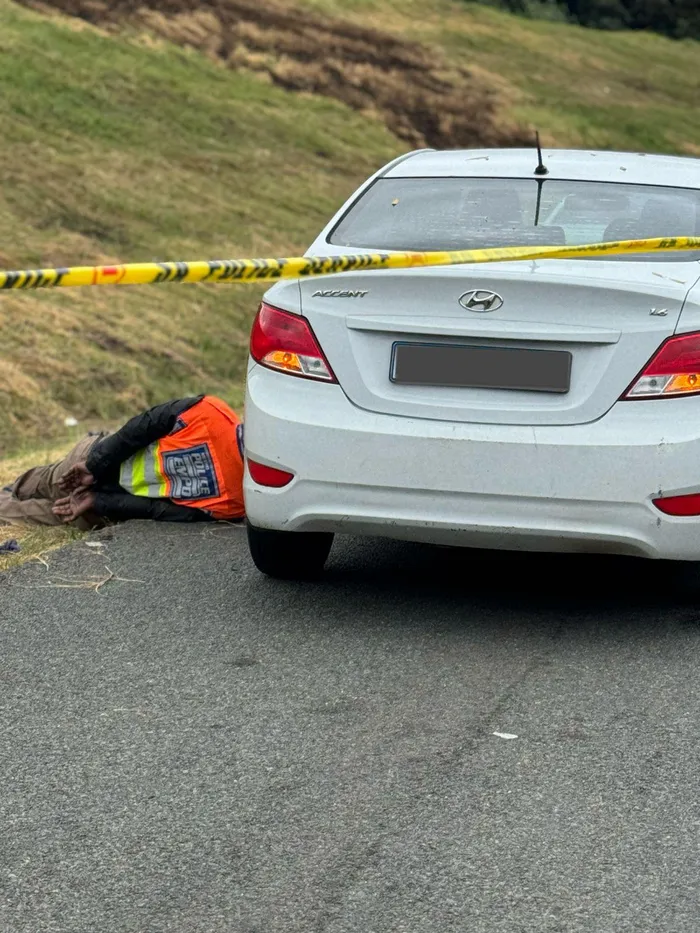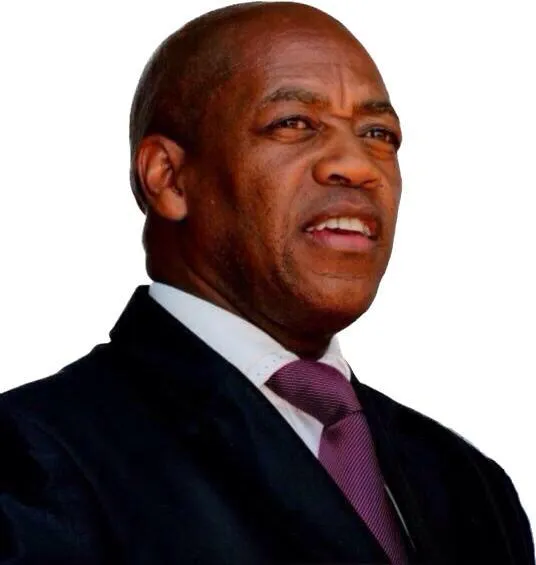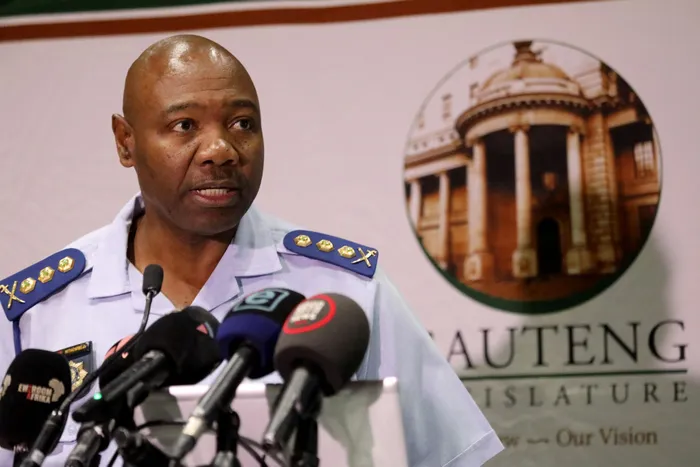Kidnapping capital of South Africa: How can Gauteng combat its worrying kidnapping crisis?

Crime statistics released by provincial police commissioner in Gauteng, Lieutenant General Tommy Mthombeni, showed that kidnappings are on the rise, with an increase of 15.8 percent between January and March.
Image: SAPS
Communities in Gauteng are increasingly at the mercy of heartless kidnappers with latest crime statistics released by provincial police commissioner, Lieutenant General Tommy Mthombeni, showing that kidnappings have increased by 15.8 percent between January and March, compared with the same period last year.
In a nutshell, the statistics released by Mthombeni, who briefed the Gauteng Provincial Legislature’s Committee on Public Safety on the fourth quarter crime statistics for the 2024/25 financial year, show that police in Gauteng arrested 88 suspects linked to 62 cases of kidnapping, and rescued at least 77 victims of kidnapping in the first three months of this year.
The kidnappings in Gauteng are often linked to hijackings, robbery, ransom demands, extortion, and human trafficking.
IOL spoke to security strategist Andy Mashaile, a retired Interpol ambassador, for an in-depth analysis into the Quarter Four crime statistics, focusing on the rising kidnappings in Gauteng.
“This is an alarming increase. Gauteng recorded a 15.8% year-on-year surge in kidnappings between January and March 2025, far exceeding the national average increase of 6.8 percent.
Describing Gauteng as the national epicenter, Mashaile said the province accounts for 52.8% of all kidnappings in South Africa, with Johannesburg as the worst-affected area.

Renowned security strategist Andy Mashaile, a retired Interpol ambassador, spoke to IOL on the interventions needed to combat kidnapping cases in Gauteng
Image: Supplied
Regarding the kidnapping hotspot police stations, Mashaile said 26 of South Africa's top 30 kidnapping hotspots are in Gauteng, and these include Jabulani in Soweto and Johannesburg Central SAPS.
Primary Drivers of the Kidnapping Surge
Mashaile pointed out that the first category is express kidnappings for quick cash, which have become prevalent. He said 80% of Gauteng's kidnappings are linked to robberies, in the form of car hijackings, and home invasions.
“Victims are held briefly to force cash withdrawals via bank cards, mobile apps, or small ransoms from relatives,” he said.
This category of crime has become rampant because the criminals view it as low risk, owing to the short duration, and the high reward in the form of immediate cash.
The second driver of kidnappings, according to Mashaile, is organized crime and extortion.
Get your news on the go, click here to join the IOL News WhatsApp channel.
“Kidnapping syndicates increasingly target business owners, for example people in construction or retail, for large ransoms. Extortion rings, the so-called construction mafias, use abductions to intimidate competitors,” he said.
“Police Minister Senzo Mchunu confirms kidnappings are syndicate-driven, with complex operations requiring multiple perpetrators.”
The third force driving kidnappings, according to Mashaile, is inadequate policing and legislation.
He pointed out intelligence failures, dysfunctional intelligence structures that limit proactive interventions, and legal gaps with outdated laws hindering investigations and prosecutions.
Mashailed said proving ‘express kidnapping’ is often harder than cases of robbery alone.
He also outlined that law enforcement agencies are dogged by endemic resource constraints.
“Despite arresting 88 suspects and rescuing 77 victims in Quarter 4, police lack specialized units and the technology,” said Mashaile.
The fourth driver of the kidnapping wave in Gauteng, according Mashaile’s analysis, are socio-economic triggers including widespread unemployment and poverty.
He said the kidnappings are fuelled by desperate individuals who join criminal syndicates seeking a source of income.
Regarding solutions to arrest the kidnapping wave, Mashaile recommended intelligence-led policing and specialized units.
“They should expand anti-kidnapping units. The existing unit rescued 77 victims in Q4 2025. Scaling this model with dedicated detectives, forensic accountants, and rapid-response teams is critical,” he said.
Mashaile also recommended public-private partnerships, leverage initiatives like the “Eyes and Ears” in conjunction with Business Against Crime SA, to share real-time data from security firms, trackers, and CCTV.
The crime analyst also applauded Gauteng's Premier Panyaza Lesufi for the rollout of township surveillance camera, which Mashaile believes must prioritize kidnapping hotspots like Soshanguve and Kagiso.
“A multi-sectoral approach is non-negotiable. Gauteng's kidnapping crisis stems from opportunistic crime evolution and systemic enforcement gaps. While express kidnappings dominate, extortion syndicates compound the threat,” said Mashaile.
He said to turn the tide on the wave of kidnappings, in the short term, the authorities must turbocharge police-community-business partnerships for rapid intelligence sharing.
Among the long-term interventions, Mashaile believes the authorities must address endemic poverty through job creation, to reduce syndicate recruitment.

Gauteng provincial police commissioner, Lieutenant General Tommy Mthombeni.
Image: Timothy Bernard / Independent Newspapers
“As Gauteng provincial police commissioner, Lieutenant General Tommy Mthombeni stressed, defeating this scourge of kidnappings hinges on working together to ensure criminals have no place to hide.
“The Quarter 4 statistics are a wake-up call. With coordinated action, Gauteng can reclaim its safety,” said Mashaile.
Last year, IOL reported Gauteng had recorded a sharp rise in kidnappings, murder and other forms of contact crimes including robbery. This was revealed by Mthombeni, in his maiden address since being appointed to the hot seat.
IOL News
Related Topics: